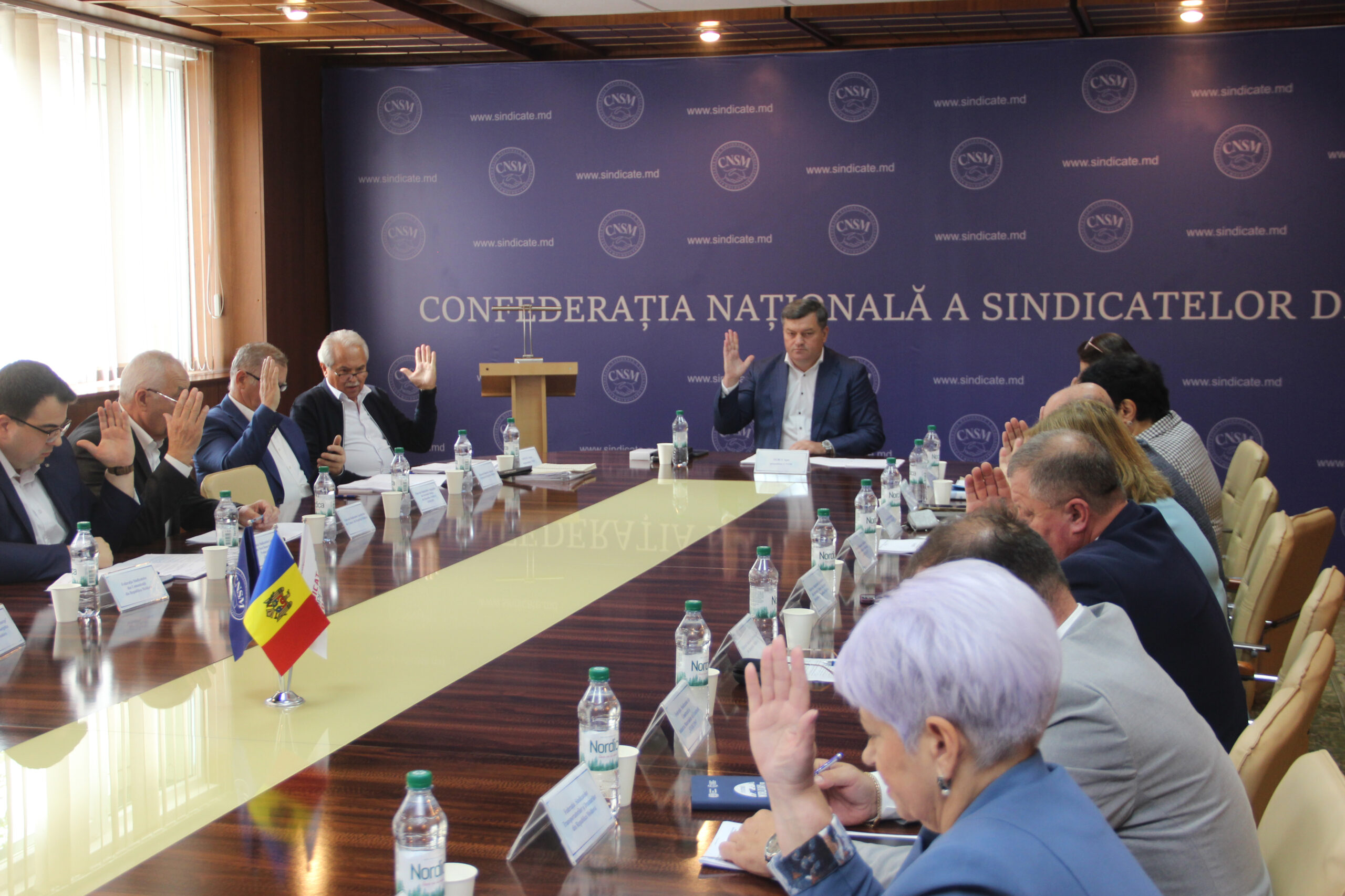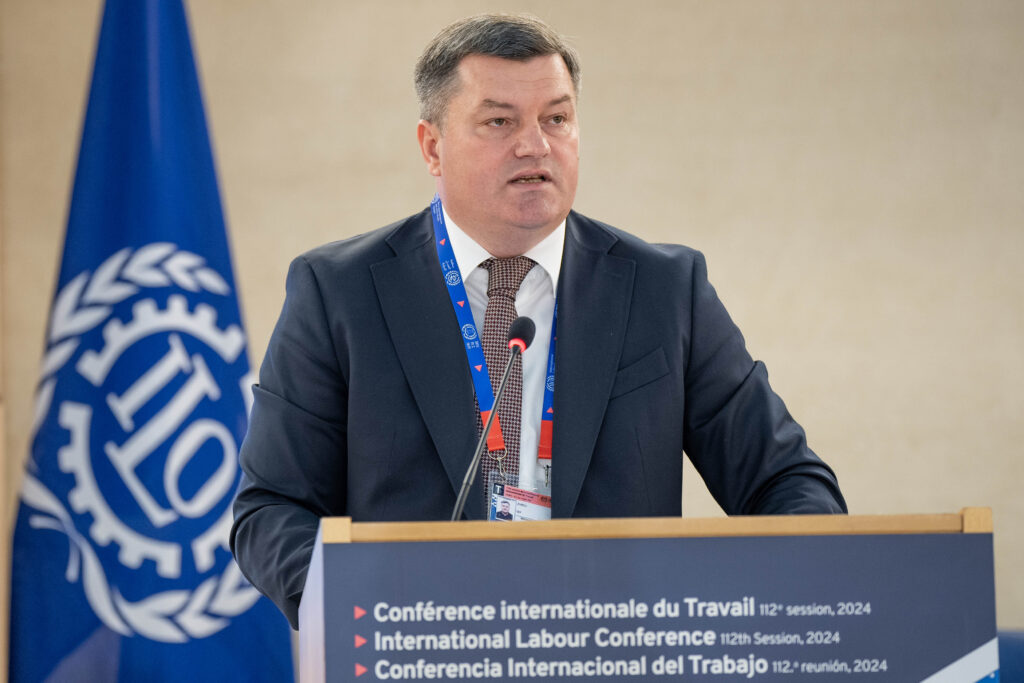The National Trade Union Confederation of Moldova (CNSM) held, on Thursday, 18 September 2025, the meeting of the Confederal Committee, in the meeting room of the Trade Union House. During the meeting, several major issues of importance for the trade union movement and for the protection of workers’ rights in the Republic of Moldova were addressed.
At the meeting of the CNSM Confederal Committee, the Confederation’s proposals for the Activity Program of the new Government and the Action Plan for its implementation were approved. The main directions focus on: job creation and ensuring a decent wage, establishing as of 1 January 2026 a minimum wage of 8050 lei, strengthening the social protection system, and improving the pension mechanism.
At the same time, CNSM requests the alignment of national legislation with European standards on labour, occupational safety and health, as well as strengthening social partnership by increasing the coverage of collective bargaining.
The CNSM Confederal Committee also approved and submitted to Parliament, Government, and the responsible institutions a draft law aimed at improving the pension system. Proposals include: counting childcare periods provided by grandparents or other relatives towards the contribution record, including maternity and paternity leave, periods of military service under contract, as well as periods of temporary incapacity for work or unemployment.
The draft law also provides for the possibility of pension reassessment for those who continue working after retirement, lowering the retirement age for women with three or more children, and improving the tax treatment of vulnerable categories of pensioners.
The members of the CNSM Confederal Committee examined the situation regarding compliance with collective agreements and contracts throughout 2024. At national level, 21 tripartite and one bipartite collective agreements are in force, with no reported violations. At branch level, in 2024, 20 collective agreements were active, but issues were reported, such as failure to grant bonuses for hazardous working conditions, lack of involvement of trade union leaders in management boards, delays in collective bargaining, and disregard of provisions by control and regulatory institutions.
CNSM will continue to monitor the situation, promote amendments to the national collective agreement for the establishment of wage supplements, and call on the Government to advance the adoption of the Action Plan to increase the rate of employees covered by collective bargaining.
Also, during the meeting of 18 September, the CNSM Confederal Committee examined the report on the activity of the Trade Union Labour Inspectorate for the first half of 2025. During this period, 73 visits were carried out in public sector entities, covering more than 2700 employees, 96% of whom are union members. Inspectors identified 1892 violations, the majority (about 90%) related to occupational safety and health, as well as deficiencies in compliance with individual labour contracts. Following the visits, 93% of the identified irregularities were remedied.
The Inspectorate organized 21 training seminars, provided 385 consultations, and submitted proposals for draft normative acts regarding worker protection. Objectives for the second semester include strengthening cooperation with control institutions, promoting compliance with ILO standards, and consolidating measures for preventing occupational risks.
The agenda also included: changes in the composition of the CNSM Women’s Commission and Youth Commission, the establishment of the Public Association Volleyball Sports Club “SindVolei-CNSM”, the institution of the Medal “For Trade Union Commitment,” as well as other organizational matters regarding CNSM’s activity.
It should be noted that the Confederal Committee is the governing body of CNSM between the meetings of the General Council. It defines the Confederation’s positions on current national and international trade union issues and implements the resolutions and decisions of the Congress and the General Council.

